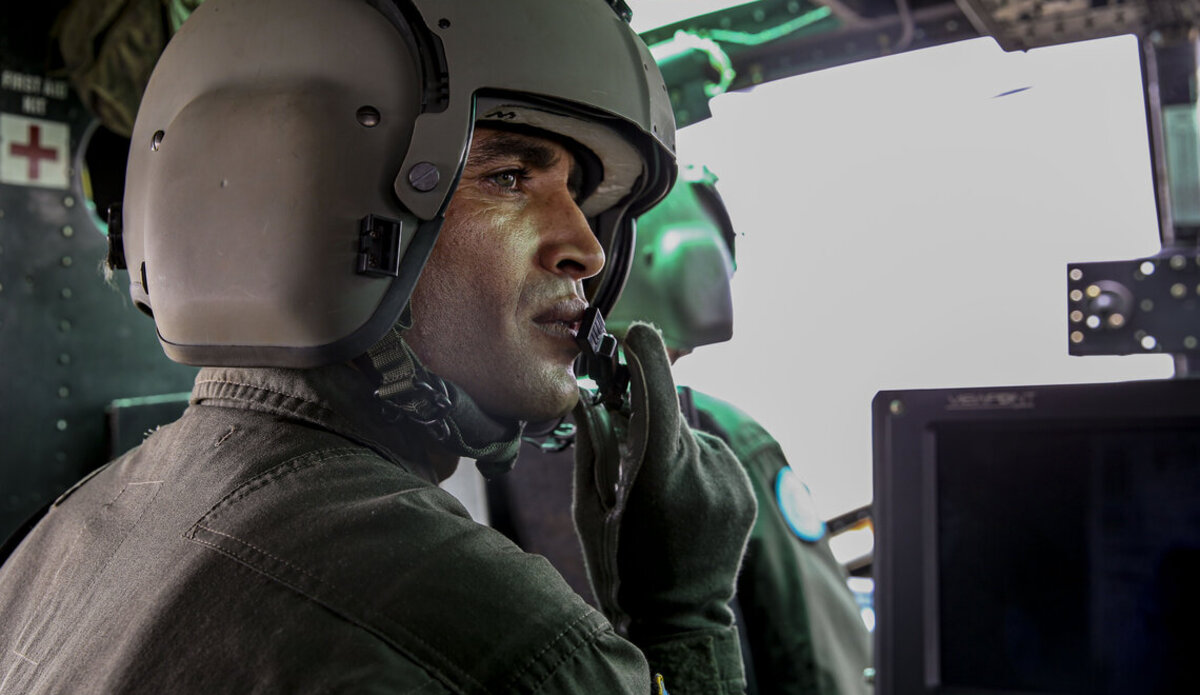Peacekeeping missions are facing increasingly high-tempo, complex and dangerous environments, where transnational and asymmetric threats pose serious threats to peacekeepers and civilians. This became particularly clear in Mali in the 2010s, where the peacekeeping mission faced unprecedented security threats to the populations it was protecting and to peacekeepers themselves. During the mission’s 10-year tenure, 174 peacekeepers lost their lives to malicious attacks while trying to protect Malian civilians, thousands of whom have lost their lives in the conflict.
Information gathering and analysis was identified as being critical to addressing these threats. After consultations with Member States, UN peacekeeping operations, intelligence experts and many more stakeholders, the first policy on intelligence in peacekeeping was promulgated in 2017 (and revised in 2019), with the creation of a new term and concept: peacekeeping-intelligence. Peacekeeping-intelligence is now a key tool helping UN peacekeeping to operate safely and effectively.
What is peacekeeping-intelligence?
Peacekeeping-intelligence involves acquiring, processing and analyzing information to enable missions to enhance the safety and security of UN personnel and inform operations related to the protection of civilians. It enables missions to better understand their operating environments and contexts, maintain a strategic overview of developments, and predict specific threats and opportunities to enable peacekeepers to effectively execute their mandates. For example, peacekeeping-intelligence can provide information on the movements of armed groups to help missions better predict and prevent attacks, or identify threats to the safety of peacekeepers, their patrols and convoys. It is continually adapted to new contexts, new threats, and new technologies.
Peacekeeping-intelligence is different to other forms of intelligence as it must respect United Nations rules and ensure the sovereignty of states. This is set out clearly in peacekeeping-intelligence’s unique guiding principles:
- Under rules: Peacekeeping-intelligence activities are undertaken in line with Security Council mandates, the Charter of the United Nations, and relevant legal frameworks. This includes human rights standards and obligations that protect rights to privacy, freedom of expression, peaceful assembly and association.
- Non-Clandestine: Clandestine activities, defined as the acquisition of information or intelligence conducted in such a way as to assure secrecy or concealment of the activities because they are illicit and/or are inconsistent with the legal framework, principles, policies and mandates of United Nations peacekeeping operations, are outside the boundaries of peacekeeping-intelligence.
- Areas of application: Information can only be acquired to enhance situational awareness and the safety and security of UN personnel, and to inform operations and activities related to the protection of civilians.
- Respect of State sovereignty: The sovereignty of states, including host and neighboring states, must be respected.
- Independence: Peacekeeping-intelligence activities must be independent from any national intelligence system.
- Accountability, capability and authority: Those making decisions about peacekeeping-intelligence must have the capacity to execute their functions and must be held accountable for compliance with the guiding policies.
- Security and confidentiality: Peacekeeping-intelligence is only disclosed to trusted individuals to ensure that it is not widely disseminated, in particular where disclosure is likely to endanger the safety or security of any individual or group, violate rights or invade privacy.
These principles reflect the UN’s commitment to enhancing the safety and security of peacekeepers and the protection of civilians, while respecting the UN charter, peacekeeping principles, and Member State guidance.
The Peacekeeping-Intelligence Academy (PKIA)
The Peacekeeping-Intelligence Academy (PKIA) was established in 2023 to build the capacity of colleagues in the field who conduct Peacekeeping-Intelligence activities. It provides them with the necessary knowledge, skills and mindset to perform their duties safely, efficiently, and effectively. The PKIA is currently funded through extra-budgetary funds from Denmark, Germany, Japan, Norway, Sweden and the Netherlands.
- Training covers how to conduct effective, gender-responsive integrated peacekeeping-intelligence across civilian, military and police personnel.
- Topics include PKI fundamentals; Military PKI; Open-Source PKI; Human PKI; Peacekeeping-Intelligence, Surveillance and Reconnaissance (PKISR); Early Warning and Critical Indicators; and Driver-Based Scenario Building. Other courses are being developed, such as Geospatial PKI and Analytical Techniques.
Training is delivered at the United Nations Regional Service Centre (RSCE) in Entebbe, Uganda, or hosted by Member States. Tailored trainings are delivered in-mission when peacekeeping operations require specialized support, and online trainings have been developed to provide foundational knowledge to a broader audience, with more being added. Member States like Austria, Brazil, Germany, Japan and the United Kingdom support curriculum development and training delivery.
Online courses for UN staff are available below and have also been made available to members of the public interested in learning about how the UN conducts peacekeeping-intelligence.
- Peacekeeping-intelligence fundamentals course
- Peacekeeping-intelligence surveillance and reconnaissance (PKISR) orientation path course
We are also working to develop pre-deployment training for peacekeeping’s uniformed personnel, with the support of Member States.
Interested in learning more about PKI? Email the team at pict@un.org. Want to learn more about the Peacekeeping-Intelligence Academy? Send an email to pkia@un.org.





